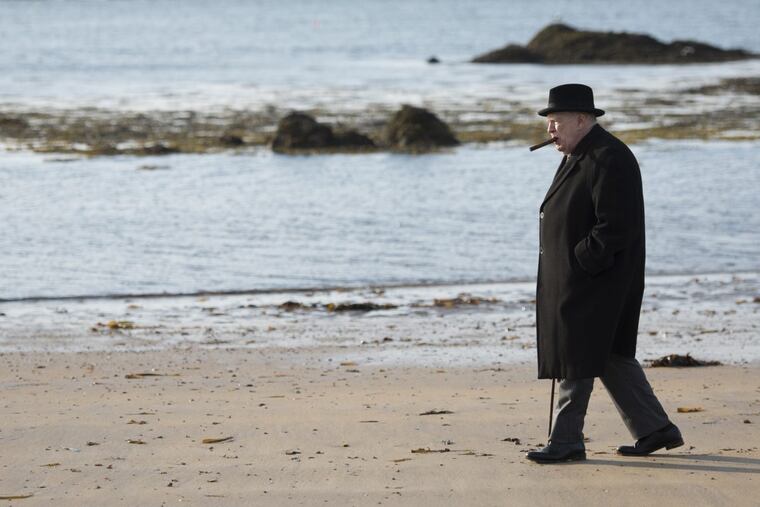Brian Cox stars in an overly theatrical 'Churchill'
Give that man a cigar - Brian Cox gives his all in the condensed biopic 'Churchill' but the movie wears us out with big scenes as the British prime minister prepares for the Normandy invasion.

Churchill arrives here just four days before June 6, which is almost precisely in line with the movie's internal chronology.
Churchill is a clipped biopic – it attempts to sketch the persona of British Prime Minister Winston Churchill (Brian Cox) by examining his actions in the week or so leading up to the Normandy invasion – when, we are told, he was a major irritant to Allied leaders planning D-Day.
The movie shows the prime minister as a man who sees the plan to be a disaster, influenced by his memory of WWI – the botched seaborne assault on Gallipoli, the trench warfare in France and its infamous carnage.
Several scenes show Churchill making his objections known to Gen. Dwight D. Eisenhower (John Slattery), supreme commander of the Allied forces. The theatrical quality of these conversations is by design — Churchill is seen scripting and rehearsing what he wants to say.
This appears to be a habit with Churchill. In the movie, all interactions with friends, foes, staff, family have the pitch of performance – he works his cigar and cane and hat like a performer, and every intonation sounds like a radio broadcast (Cox is very game here, in a role that could have used some modulation).
He never lets up (and neither does the movie), whether he's talking to Eisenhower, British Field Marshall Bernard Montgomery (Julian Wadham), his wife (Miranda Richardson), or God. Churchill, in his pajamas, drops to his knees one night in an attempt to get the Almighty to see things his way.
To no avail. The invasion, of course, carried on without Churchill's approval, and the war in Europe would be over a year later, with the Allies in Berlin.
Churchill isn't a history rehash, though. It's a movie that looks for poignancy in the prime minister's waning influence. He galvanized and inspired the British people during the darkest days of the war, stood as its most indispensable citizen, and now looms as a troublesome relic. Ike is correct when he says Churchill doesn't understand the realities of modern warfare — its speed and machinery and technology.
The movie suggests that the prime minister's bruised ego contributes to his obstinance, but he also comes by his conviction honestly – a prologue shows Churchill alone on the beach, confronted by a vision of the water turning to blood, aware of his awesome responsibility as an advocate for British interests, haunted by the tragic mistakes of WWI.
And the Allied leaders need him and his unique ability to rally the public and the troops. Churchill culminates with the prime minister, in a final test of leadership, setting his reservations aside to give the speech the nation requires.
It would be nice to say the movie reaches an emotional peak at this point, but its succession of Big Moments takes its toll – the movie is exhausted, and so are we.
MOVIE REVIEW
Churchill
Directed by Jonathan Teplitzky. With Brian Cox, John Slattery, Miranda Richardson. Distributed by Cohen Media Group.
Parent's guide: PG (war).
Running time: 1 hour, 38 mins.
Playing at: Ritz 5.